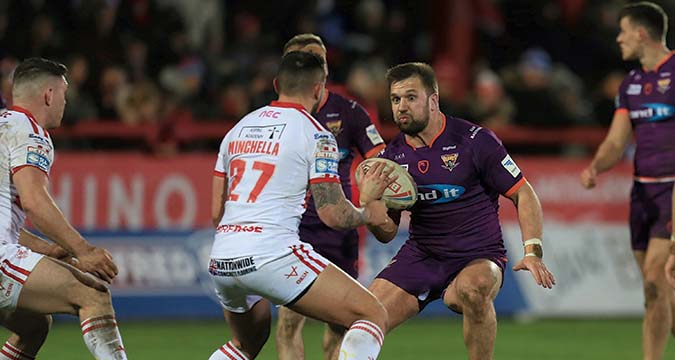
Covid-19 has seen a siege of rugby league officials portray an image of solidarity and unity.
We’ve been told repeatedly that all clubs will work together to ensure the sport comes out on the other side of this pandemic. It’s been reiterated time and time again that clubs are united in working through an array of challenges.
These comments all get the same response from this writer; one big, fat eye-roll.
Rugby league is drowned in self-interest and it’s hardly been more apparent during lockdown.
Within weeks of the sport’s inactivity Super League clubs were already calling for relegation to be scrapped.
While some of the Championship’s promotion hopefuls hit back, their comrades voted for the season to be null and void and expressed no desire to play while furlough was active.
Then Super League clubs squabbled about a salary cap reduction.
Even the most gullible among rugby league’s tribalistic fanbase will have questioned Super League’s ‘unanimous’ decision to keep the salary cap in place following a fortnight of clubs keen to reduce the cap explaining their rationale.
The reality is that they weren’t unanimous and still aren’t. It was a PR stunt.
Yet, it would be wrong to criticise clubs for pursuing their agendas. Should we expect anything else? Of course we shouldn’t. As custodians, head honchos are obliged to act in the best interest of their club.
Whether it be by preserving their position at the top table or reducing spending across the competition to give them a chance of competing, by hook or by crook, they have a duty to protect their business, not the sport.
To think clubs, any club, would vote in the best interest of the sport all the time is fanatical.
They’ll vote in the best interest of the sport when it suits them.
The issue in rugby league is that clubs have too much say in too many decisions.
Altering the salary cap is a seismic decision but all it needed was for seven clubs to vote it through and that was that. The sport’s governing body and the competition’s executive body had no say in the matter. It’s alarming.
Likewise, the RFL remained on the fence when clubs engaged in an almighty civil war regarding the league structure back in 2018. It was, again, a pivotal decision in the sport’s future that was ultimately decided by clubs with their own agendas.
Many CEOs and club owners have admitted privately that clubs have too much power. They know it, we know it, yet it still continues.
The governing body is there to govern but too often it feels as if their role is to mediate. Ralph Rimmer has stamped his authority more often than we have seen in the past; it’s clear reading between the lines that he is keen to ensure promotion remains viable this year despite objections from Super League clubs. Despite that, clubs still have too much power to dictate key decisions when the majority will always vote in the interest of themselves.
Clubs should have their say and they should be considered too. But while clubs make calls based on self-interest, the RFL should be the impartial figurehead that controls the sport’s direction. Rimmer’s reputation has improved significantly among clubs for the leadership he has shown during this pandemic.
Now, he needs to take more authority and guide the sport forward on all fronts.
